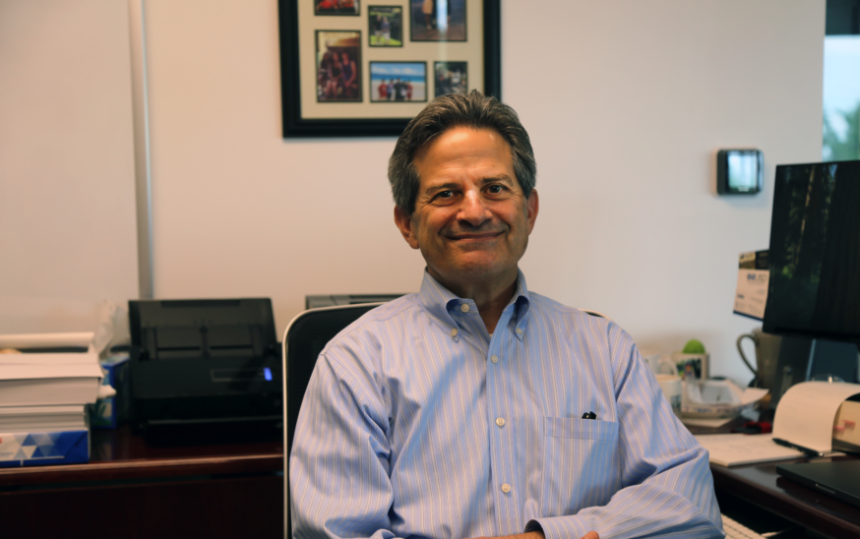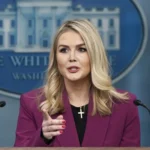Daniel Adelman took up the helm at the Center for Law in the Public Interest in 2018. During his tenure, he led litigation to keep people housed during the pandemic, cut the Legislature’s ability to sneak provisions into budget bills, ensured funding for vital school facilities, and, most recently, challenged a $15 million pork appropriation to the Prescott Rodeo. As he transitions out of his role, he hopes his successor shares his passion for leaving the law better than he found it.
What drew you to public accountability law?
The school work was actually what drew me to the center. I joined the board in 1994 — the same year that the center won the first case that declared the way Arizona was financing its public schools as unconstitutional. I used to run this camp for underprivileged kids, and I used to go to the schools to meet with parents of these kids, so we could assure them their kids will be safe and everything. (The schools) were horrible. We won that case, and the state ended up putting in over a billion dollars fixing and building schools. I went back to those same schools, and they were nice … and it just drew me to the power of impact litigation and forcing the state to obey the Constitution.
How has the state changed in terms of compliance and constitutionality?
In a lot of ways it really is worse than it’s ever been.
Part of the reason that I really appreciate good journalism is people have to know what’s really going on, and if all you get is your social media feed, or all you look at are reporters that are going to agree with you and feed you whatever, it is really easy to try to take away people’s rights … I think that conspiracy-driven narrative is for real, and it’s taken hold, not by any means with all of the legislators, but with a lot of them.
Republicans were in charge of both houses (when I started), but everything was very fact driven. And people choose which facts they think are most important, and that’s fine, but it wasn’t all just fake, and I think that’s changed, and it’s scary.
Has your approach changed at all now that conspiratorial thinking has gained more legitimacy?
It makes the law even more important, right? Because there’s this narrative that we’re increasing public school funding, and they’re just wasting it all on administration. And if all you’re doing is giving a press release, it’s super easy to say stuff like that. When you go to court, you have to prove it with evidence. There is no evidence to support that in Arizona. Arizona spends less on administration than every other state … I feel like it’s even more important with some of the battles between the different houses in the Legislature, or between the Legislature and the governor. There are times when you need a court and you need someone, like the reason.
The center does pro-bono work. Why is that important?
We advocate for people who otherwise would have no voice. We’re litigating the rodeo case. The reason we’re doing that case is the principle involved. There are these limitations in the Arizona Constitution. If the Legislature doesn’t follow them, all kinds of bad things can happen. It’s not just ‘Does a rodeo get the money or not?’ That isn’t the point. The point is, do they have to comply with the Constitution? Two residents who are just people in Prescott are the ones (who) retained us. It’s been a lot of work. They could never afford attorneys. Regular people could never afford that … The center, which is totally pro bono, it’s just this huge tool that gives regular citizens the power to challenge the legality of what’s going on.
How do your personal values lead you in the work you do?
Family is hugely important to me. I have wonderful kids who are all adults now, and all successful and in wonderful stuff. I’m making sure that I am a good husband and a good dad, but also a good lawyer trying to make the world a better place. My parents are and were people who devoted their whole lives to making the world a better place. My dad was in the Air Force and a professor, and my mom was a principal. It was just a big part of everything we did, that our job here is to make the world a better place … that’s driven my whole career.
What are some of the concrete changes you’ve seen happen as a result of action the center has taken?
When we did the budget reconciliation bill case, like you hear about that, and you think that is like the most boring constitutional law, who cares? But it was at the height of Covid and the things that they were putting in what were supposed to be budget bills had these really far reaching health consequences, and this emergency physician came up to me and just said, “You have no no idea how many lives you saved by having the Supreme Court rule that those things were unconstitutional.” A lot of doctors saved a lot of lives, not every lawyer gets to.
What parts of the cases you litigate stick with you?
A lot of the witnesses in the school finance case, after they would testify about how bad it was and how they’ve been trying to get help fixing a roof, or whatever. Well, after they testified and they were in the case, that roof that they’ve been trying to get fixed for eight years suddenly got fixed.
Once you have these people under oath, they’re talking about what’s really happening. This isn’t somebody just saying something on social media. It’s like they really have skin in the game. The most frustrating thing is the kids are the ones who suffer from this. The people who are most responsible will never suffer any of the bad consequences of their decisions, like to not fund the capital needs of public schools. The children who have no responsibility for causing the problems, they’re the ones who suffer.
What are your next steps after the center?
This has completely been a dream job for me, like it is exactly what I hoped it would be. And I feel like we’ve accomplished a lot of good things. There’s no shortage of public interest work in Arizona, but I’ve just been doing full time law for 38 years now. So it’s just time to kind of step back from the full time practice. I think I will continue to be involved in probably a fair amount of the center’s work … I plan to stay involved as the education finance case will likely be appealed no matter who wins. I put a lot into that case, and will certainly offer, like my predecessor did, to continue to help even after he stepped down.
What are you looking forward to doing with a little more time?
So I’m in a rock band. And I do plan to continue to do that and to do it some more. I have a bunch of hobbies, gardening, art, stuff like that. I’m hoping someday in the not too distant future to be a grandpa, and I plan to devote a lot of time to that, and I’ll probably stay in the law in some ways too. So yeah, I have a lot of interests. Excited. I definitely have both parts of my brain that like doing stuff.










